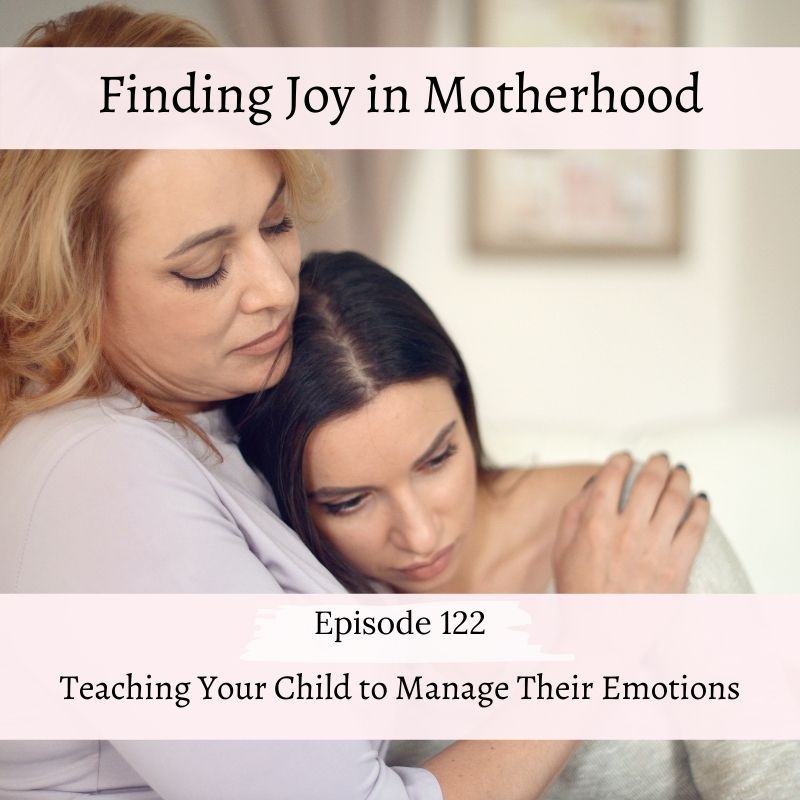Love what you’re hearing and want more?
Sign up to join the waitlist for Reimagine Motherhood, my monthly coaching program. I give practical tools and help you make mindset shifts to create the marriage, motherhood, and home you’ve always wanted.
Notes from This Episode
Background:
- Parenting involves teaching our children life skills, their faith, providing an environment for our children to become independent thinkers
- We never talk about our responsibility to teach our children how to manage their emotions
The Problem
- So many young adults do not know how to manage their emotions
- We often react when our children display inappropriate emotions, and often, our reaction is with our own negative emotions – only they’re bigger and louder because we are bigger and louder
- We don’t teach them why they have these emotions and how they can control them
- Remember, our feelings and emotions come from our thoughts, and they don’t just pop out of thin air
How to Manage Emotions
- There are three different ways that we deal with negative emotions: resist, react, or avoid
- Our children resist emotions when they do not allow themselves to feel the emotion
- We have often encouraged this reaction by telling our children “don’t let it bother you” or “stop crying” or “it’s no big deal”
- Our children react to negative emotions when they have tantrums, get into fights, or get angry and say hurtful things
- Our children avoid negative emotions when they turn to gaming, social media, eating or exercise disorders, or alcohol or drugs
- Our children resist emotions when they do not allow themselves to feel the emotion
- Our goal should be to help our children process emotions and help them, from a very young age, to learn to feel the negative emotion without resisting, reacting, or avoiding
- Our empathetic response should be to acknowledge and validate the emotion. This is critical for our children so that they can see that having an unpleasant emotion is okay – it will subside unless they choose to hang on to it and make it mean more than it needs to
- By processing an emotion, we help them see that they can choose to manage their mind rather than be a victim of their unmanaged mind in emotional outbursts or mental suffering
- How do we do that?
- We have to manage our own minds and stay calm, rather than reacting to the situation
- We need to become empathetic and become curious – why did you hit your brother?
- Help them understand that their reaction is not the proper response to what happened and how they can choose a different way to process the emotion
- We help our children separate fact from story
- Help them get a very clear understanding on what happened, rather than sweeping statements that have become the story
- Take the time to listen to your child and let there be silence. Don’t automatically come in and start solving the problem
- Don’t make automatic judgments
- Help them become aware of their thinking and show them how other people’s thoughts or comments are about the other people – not about them
Final Thoughts
- When we help our children truly process their emotions, we eliminate the indulgent emotions that look like whining, complaining, arguing, tantrums, or just being touchy and easily offended
- We help our children solve their own problems by giving them a tool, a practice, to interpret and respond to the people and circumstances of their life and a way to choose what they want to think and feel, rather than feeling like a victim to their emotions
- We need to help our children realize that they, too, can choose what they think of a situation or of what a person says about them or what they think about themselves
- Help your child manage their emotions by first, helping them get in touch with what they think and then helping them see the connection between what they think and how they feel

